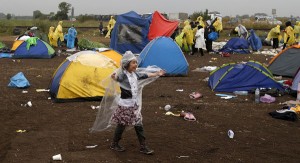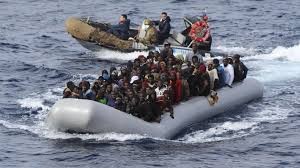The many predictions. The fear. The waiting. And then, the blast.

It is ironic that among the victims of the Paris Attacks last Friday, there was a volunteer of the humanitarian aid organization Emergency, whose members operate in Syria and Afghanistan to assist victims of war. Commenting her death, Gino Strada, the founder of Emergency, summarized this irony by paraphrasing the German poet Bertold Brecht:
“The war that comes is not the first one. Before there have been other wars. At the end of the previous one there were winners and losers. Among the losers the poor people were hungry. Among the winners the poor people were equally hungry.”
Years of destruction and “strategic foreign policy blunders” –starting with the ill-conceived transition of post-Saddam Iraq and continuing with a series of haphazardly planned interventions in North Africa and the Middle East led by an axis of French, British and US forces, are presenting their bloody bill to populations in Syria, in Iraq, in Turkey, in Libya and Lebanon…
–and now, also, in Europe.
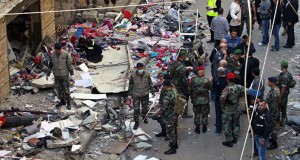
Beirut
-Paris
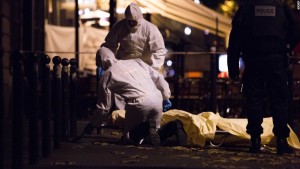
Even more so than the previous one in January, the Paris attack of 13 November shows that there can be no more far-away wars for Europeans. After 50 years of relative ‘peace’, which was, in hindsight, no less hard-lived than it was illusory and fragile, the Old Continent is once more caught in the eye of the storm. That in itself may already be a rather hard lesson to swallow for some of its inhabitants: as intelligence services across the Atlantic are warning more attacks may be coming ahead soon, we might actually be seeing the first war refugees moving across Europe as a result of persistent terror threats in some countries (one friend of mine, who lives at 200 meters from one of the attack sites, admitted she had wanted to leave France for some time: ‘you can literally feel the tension in the streets,’ she said. I imagine she is not the only one).
A second fundamental insight, I think, is that Europe is increasingly waging a war on itself. By this I mean not only the eroding rights of secondary and aspiring citizens who are living their increasing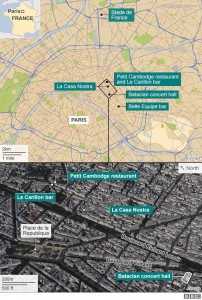 ly secluded lives. But also the very idea of unity in diversity –one of the fundamental values the European project and the ‘no-more-war’ credo it once pretended to stand for, is falling flat on its face. In that sense, the contrast between the mixture of nationals sipping their drinks before gracelessly being gunned to the ground by ISIS attackers at the Carillon and Petit Cambodge bar and restaurant last Friday, and the recruiting grounds of ISIS/ISIL/Daesh a few miles away from there in the Parisian banlieus (‘banned spaces’) and in the Belgian communes of Molenbeek and Verviers could not have been more telling. Has ‘the problem of the banlieu’ –as one bourgeois gallery owner loathingly uttered in the movie La Haine after the 2005 riots gone global? Ironically, 2005 was the second time France declared a state of emergency after the Algerian war of independence, but not on a national-wide scale. After the Paris attacks, President Francois Hollande felt the need to do so once more.
ly secluded lives. But also the very idea of unity in diversity –one of the fundamental values the European project and the ‘no-more-war’ credo it once pretended to stand for, is falling flat on its face. In that sense, the contrast between the mixture of nationals sipping their drinks before gracelessly being gunned to the ground by ISIS attackers at the Carillon and Petit Cambodge bar and restaurant last Friday, and the recruiting grounds of ISIS/ISIL/Daesh a few miles away from there in the Parisian banlieus (‘banned spaces’) and in the Belgian communes of Molenbeek and Verviers could not have been more telling. Has ‘the problem of the banlieu’ –as one bourgeois gallery owner loathingly uttered in the movie La Haine after the 2005 riots gone global? Ironically, 2005 was the second time France declared a state of emergency after the Algerian war of independence, but not on a national-wide scale. After the Paris attacks, President Francois Hollande felt the need to do so once more.
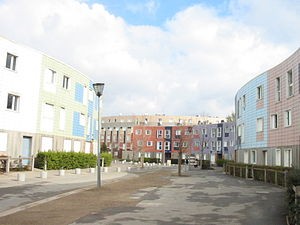
la Borne ‘labyrinth’
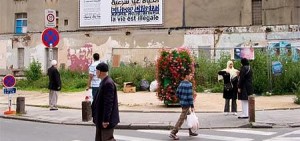
Molenbeek
We must not forget that what are now derogatively called the continent’s seething ghetto’s and hotbeds of criminal marginality have grown to be like that as a result of decades of conscious neglect, marginalization and erosive welfare politics –which at once hardened marginalization while sidestepping the much more difficult task of proper integration -and not just in run-down city neighbourhoods (on this note, see Mustafa Dikec‘s Badlands of the Republic but also, in slight contrast, this paper on Sharia4Belgium by Belgian politologist Rik Coolsaet). The social background of European fundamentalist militants may be another clear sign that at bottom’s length, this war has very little to do with religious values a priori and more with ways to avenge broken dignity: from Nizar Trabelsi to Ibrahim Abdeslam, most European radical Muslim fighters have followed a trepid path of petty crime only to become radicalized after conscious brainwashing and training by a carefully managed collective of military / ideological instigators. Reason why, according to some authors, it might actually be better to compare the organization’s culture to a mafia or organized crime group –a form of de facto power governing a segment of the globe’s borderlands -according to Loretta Napoleoni.
Whatever ISIS/ISIL/Daesh’s future terror strategy might become in terms of instrumentalizing that contrasting reality between Europe’s ‘infidels’ & ‘liberators’, the ‘free’ and ‘unfree’ world, the effects of this attack will likely have an incisive role in the life of European citizens and their rights for years to come. As the fear sets in, harnesses are put on, and knives are being sharpened –needless to say who the losers of that struggle will once more be.




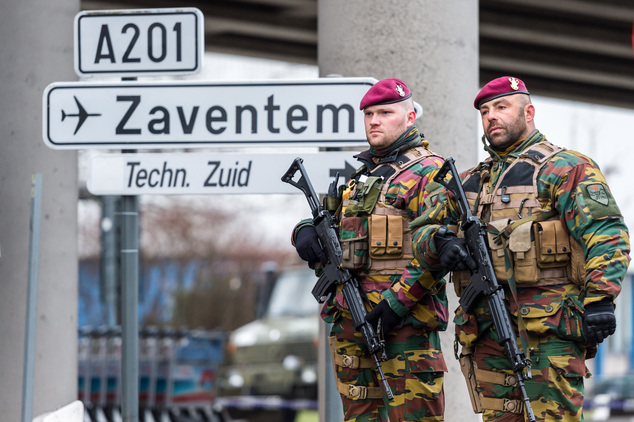
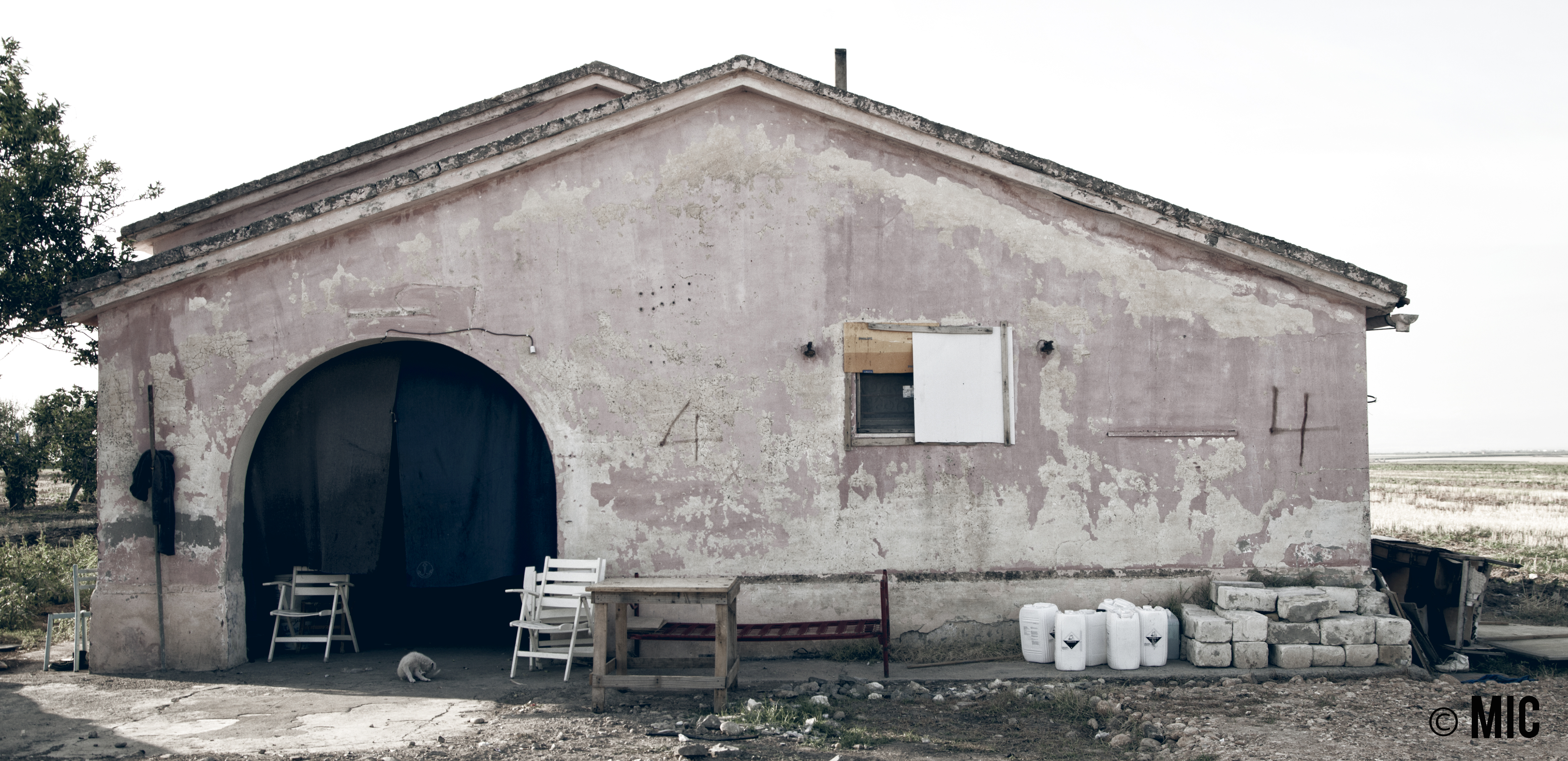
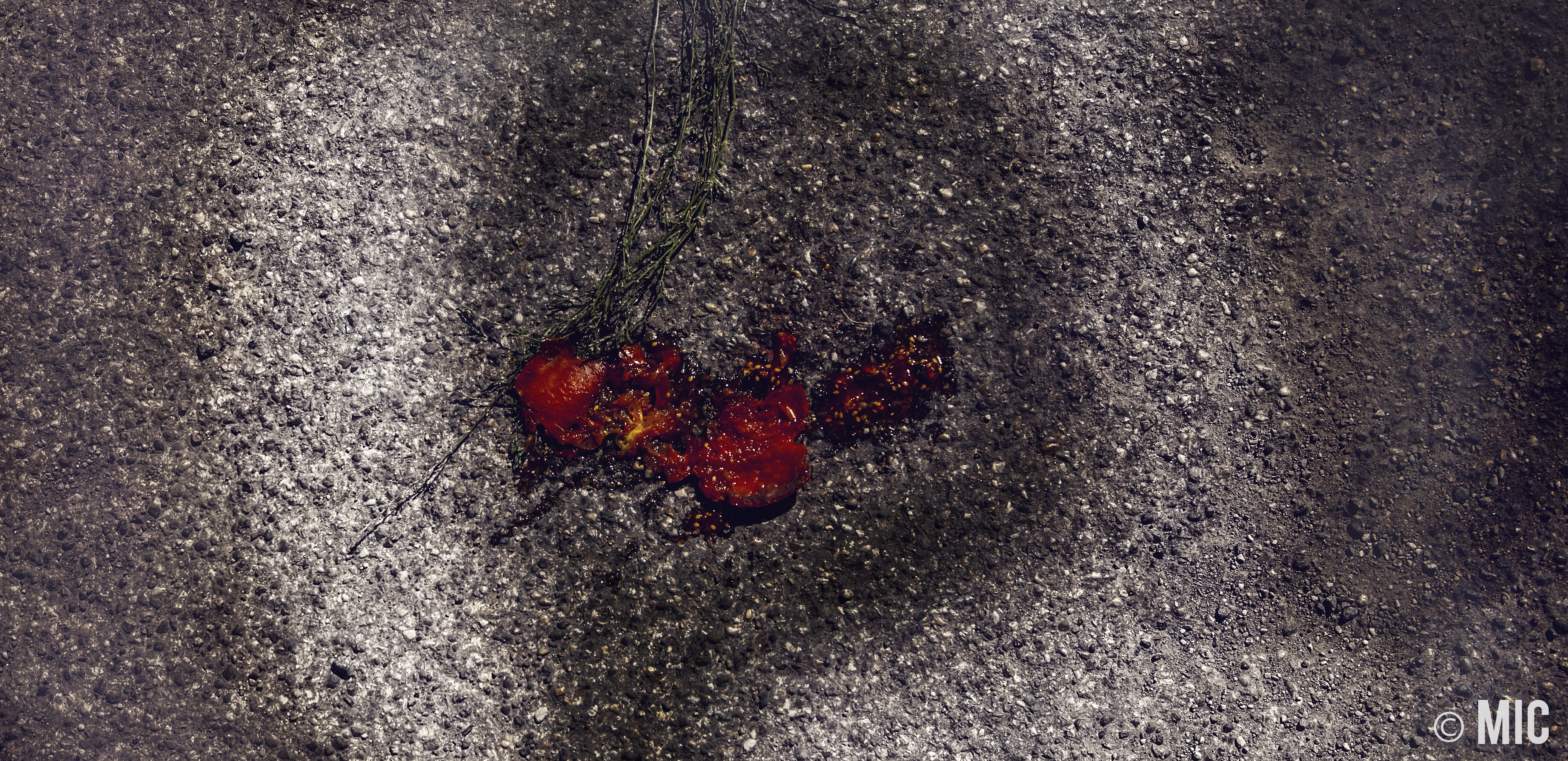

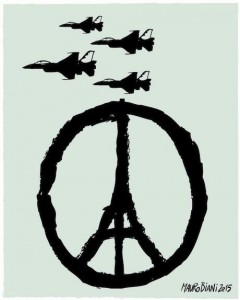
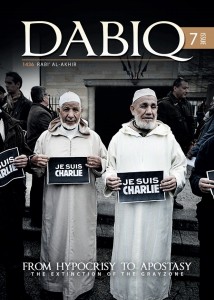


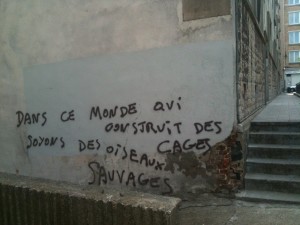



 ly secluded lives. But also the very idea of unity in diversity –one of the fundamental values the European project and the ‘no-more-war’ credo it once pretended to stand for, is falling flat on its face. In that sense, the contrast between the
ly secluded lives. But also the very idea of unity in diversity –one of the fundamental values the European project and the ‘no-more-war’ credo it once pretended to stand for, is falling flat on its face. In that sense, the contrast between the 



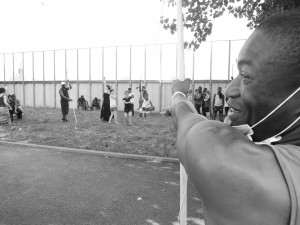

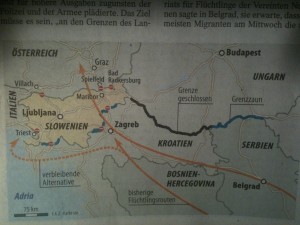
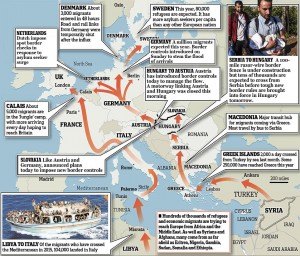 migrant flows across the Balkan route are triggering an intriguing sequence of openings and closures towards the EU, as this interesting map from
migrant flows across the Balkan route are triggering an intriguing sequence of openings and closures towards the EU, as this interesting map from 